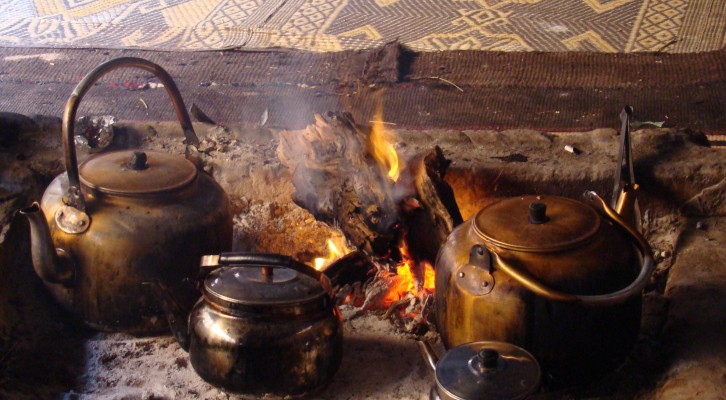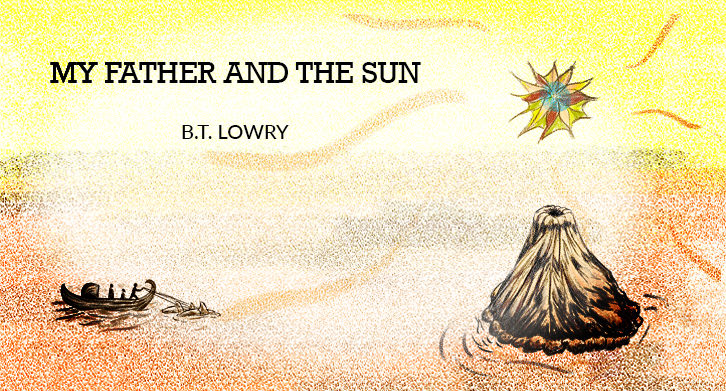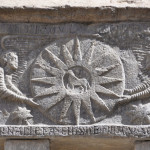Zitidos stared into the bright flames of the camel-dung fire, smothered in a weariness neither dark nor cold could penetrate. Out of habit, she pulled the tired, old shawl tightly around her shoulders. Almost threadbare, there was very little of it left anymore to warm her. Much like my faith, she reflected. So much had happened so quickly; too much, really, for her mind to absorb. In this state, it took some moments for his cries to seep into her consciousness.
Where is he? she thought, her mind jumping to attention. Where was the one who had promised to love her all the days of her life? He was here yesterday, answered her memories, and for one bittersweet moment, she let herself travel back to the warmth of what had been before — back to the days when this shawl had been new, like the promises he made to her when he wrapped it around her shoulders on their wedding day. That day she had believed nothing bad would ever happen to them. Life felt as certain as his words and the years that followed were as good as the God they served.
But that was yesterday, she reminded herself. Things were different now. They would always be different. For the rest of her life, however long that was, Zitidos would measure time in “before the children died” and “after the children died.” Her faith would never be the same, either. It was beginning to feel like an old superstition — comfortable, but useless, like the tattered shawl she clung to. She feared this final storm might just leave her in shreds.
When did he leave? The desert night wind carried his painful cries to her ears again and knew that she should go and look for him. Something more was wrong. Slowly, her body stiff and heavy, she rose and turned towards the sound of his voice. Moving seemed to require more effort than she had. As she moved away from the fire, someone called out, “Ziti, where are you going? Don’t leave. You’ll catch your death…” The voice trailed off behind her as she stepped out into the night, contemplating their words.
And what would be the harm of that? she thought, bitter. Staring at the rocky sand beneath her sandals, she thought, this is where my heart is now, buried in the rubble. As she stepped away from the oasis and into the cold, she hesitated, considering what she was leaving behind: a warm fire, the comfort of well-meaning friends, a predictable faith — a faith that did not ask too many questions or expect too many answers.
Peering into the darkness, her eyes strained to follow the sound of his cries, but she could not see him anywhere. Zitidos realized that if she wanted to find him, she would have to follow the sound of his voice without being able to see where she was going. Clutching the old shawl, she whispered a prayer for safe passage through the night, but the silence that met her words only frightened her more.
Why did he leave me? she pondered. For a moment, she wondered if she even wanted to find him. Her thoughts trailed back to the deaths and disasters and his confusing silence in all the time since then. Only a few whispered words of praise when they first received the news, but not one after that — not to anyone, not even to her. Especially not to her. No words could stop the tears streaming down his face, but no words came from his mouth to seek comfort or to give it, either. His silence had shut her out as never before. Zitidos felt abandoned and confused and confusion always made her angry. Stumbling into the cold, her anger began to warm her. The questions she had been avoiding tumbled once again into her mind. What was he thinking? Did he blame himself? Did he blame her? Did he think God hated them? She could hardly argue with that. What had they done to incite such wrath? Why did the children all have to be together that day? Was there anything they could have done to save them? What would they do now? Was there any reason to go on?
A sudden gust of wind blew away the clouds overhead, revealing a moon swollen with light. Now she could see the outline of his body in the dark just ahead. What is he doing here? she thought, sadly realizing that this pitiful place, full of castoff debris, reflected how their lives were now. Almost as an afterthought, she remembered the other losses they had suffered as suddenly — losses that eliminated their livelihood, as well as everything they had worked so hard for all these years. What difference did it make now, anyway?
Approaching him slowly, Zitidos thought how strange he looked, hunched over, his shaven head gleaming in the moonlight. He looked as forsaken as she felt. Would he speak to her now? She was afraid of the answer as she sat down beside him, pulling her knees up to her chest, hugging herself tightly. Staring into the smoldering ashes, she waited quietly, hoping that he would take notice of her, speak to her, acknowledge her presence somehow — anything. Was this how it was to be between them now? She had never felt so alone.
Quietly, she spoke into the dying embers, not wanting to face him. “How long will you endure?”
His eyes were closed as he rocked back and forth, scraping something she could not see across his legs.
“How long will you endure,” she pleaded again, “expecting God to give you some explanation?” Her words spilled out angrily. “Already He has forgotten you, and our children dead in the ground. And here you sit in rotting garbage, sleeping outside, while I am alone with a grief that is more than I can bear, wandering from place to place, waiting for the sun to set on my pain, hoping for the mercy of death.”
Overcome with loneliness and misery, Zitidos speaks from the agony of her heart, “But say some word against the Lord and die. Surely the grave is better than this!” It is the only relief she can see. Hot, angry tears overwhelm her as she surrenders to what feels like death in the silence that meets her questions. She is defeated, and as her head falls into her crossed arms, her sobs fill the night air.
Slowly, he painfully turns the upper part of his body towards her, and gazing at her as if seeing her for the first time, Job speaks tenderly, “What foolish words you speak, my dear. Why do you say such things?” His words come with great effort and his voice breaks. As he reaches out to take her hand into his, Zitidos raises her head and searches for his eyes, the moon casting their shadows into the ashes of the burned debris. She is startled by the oozing sores she sees for the first time on his face and arms. “Shall we receive good at the hand of the Lord and not receive evil?” he asked quietly.
In the deepest parts of her soul, Zitidos is silenced. His words have left her quiet. The one who promised his life to her is still with her. She is not forgotten and she is not alone. For the moment, it is enough.
author
Sally Clark has published poetry in the premier issue of Relief: A Quarterly Christian Expression Journal, Inspirit Literary Journal, Chicken Soup for the Beach Lover’s Soul and The Best Dad in the World. (Howard Books/Simon & Schuster). Her creative non-fiction has appeared in A Man After God’s Heart: When a Father’s Spirit Soars (Integrity Publishers/Thomas Nelson), LifeSavors (Tyndale House) to be released in April, 2008, and The Best Grandma in the World (Howard Books/Simon & Schuster). She have also published humor stories, children’s stories and poems, and greeting cards.
photo credit: susanne anette via photopin cc










